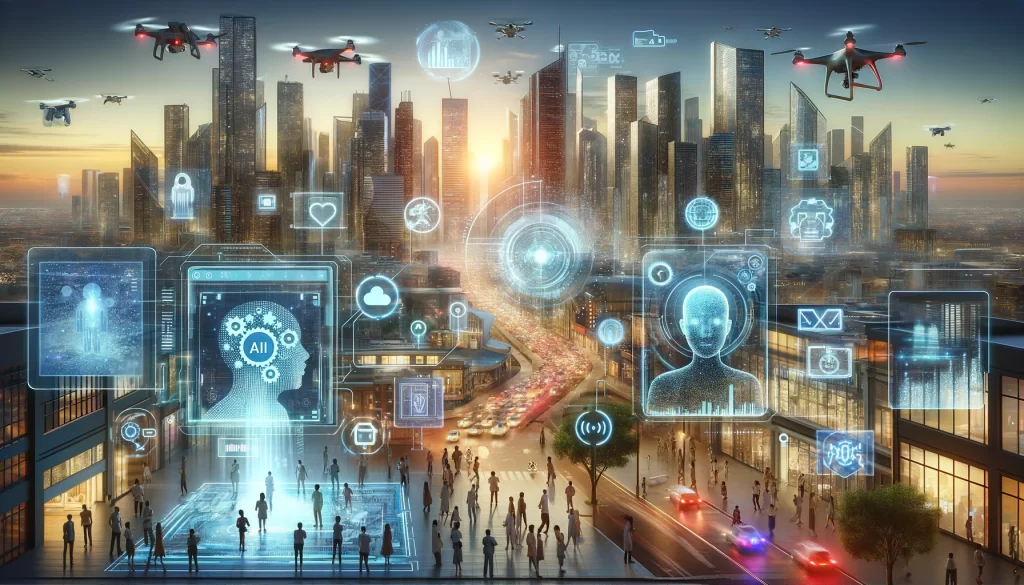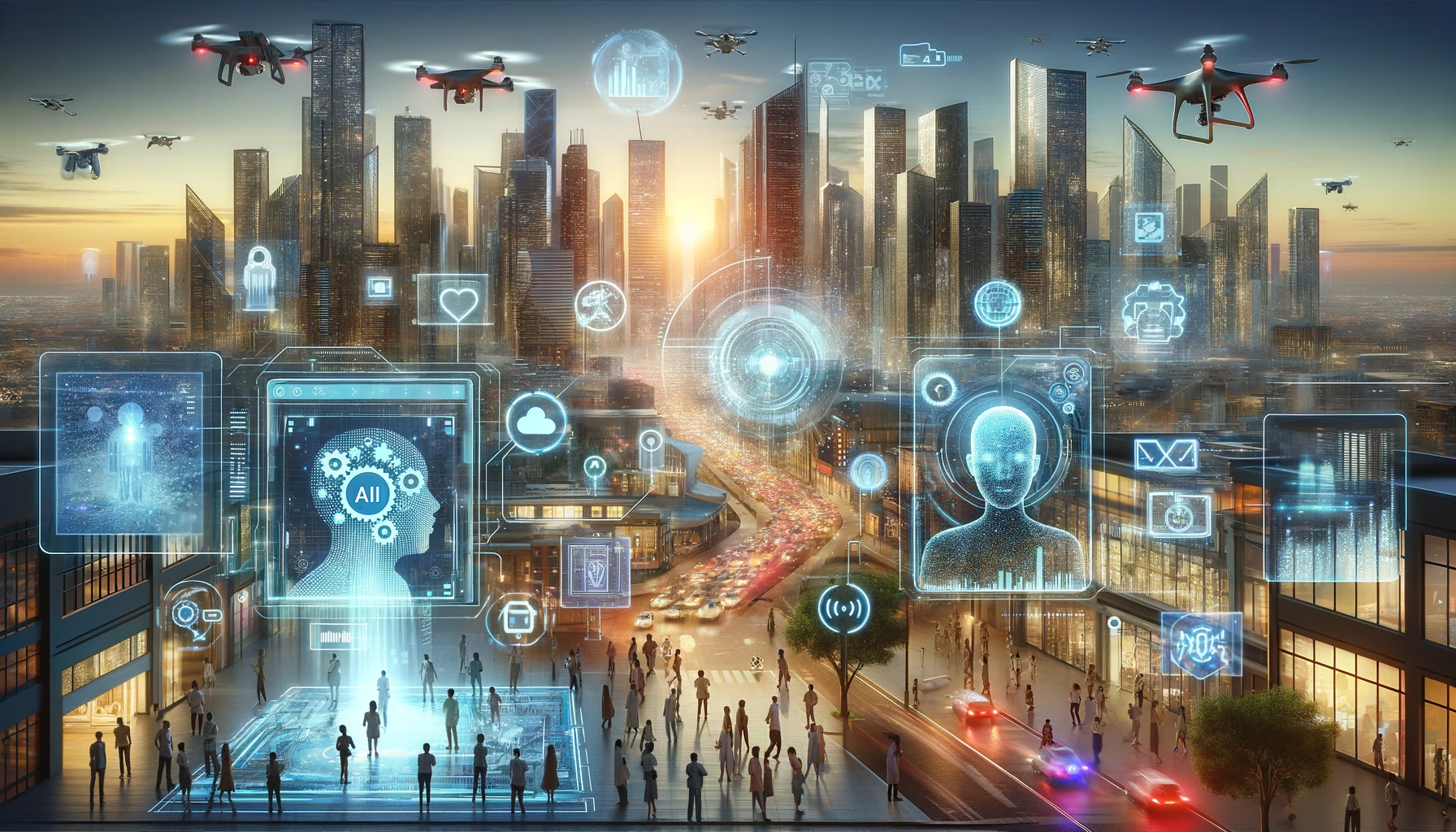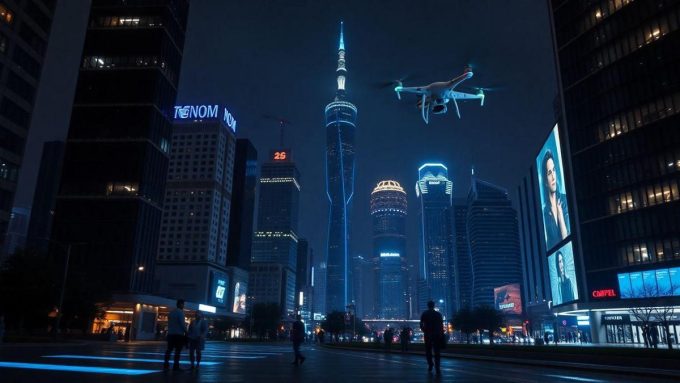The future of GPT technology stands at the forefront of transformative advancements in artificial intelligence, promising to redefine our interaction with digital worlds.
As Generative Pre-trained Transformers evolve, they bring forth new paradigms in natural language processing, content creation, and machine learning.
This introduction delves into the journey from the inception of GPT models to their current state, highlighting the groundbreaking milestones and the potential that lies ahead.
With each iteration, from GPT-1 to the latest models, we witness significant leaps in AI’s capacity to understand, interpret, and generate human-like text, opening doors to unparalleled possibilities across various sectors.
navegue pelo conteúdo

1. Introduction to GPT and Its Evolution
Generative Pre-trained Transformers (GPT) have transformed the landscape of artificial intelligence and natural language processing since their inception. Initially introduced by OpenAI, the GPT series began with GPT-1, which already showcased the potential of transformers to generate coherent and contextually relevant text.
However, it was the subsequent iterations, GPT-2 and GPT-3, that truly demonstrated the scalability and versatility of these models. With each version, OpenAI significantly increased the number of parameters, enhancing the model’s ability to understand and generate human-like text across a broader range of topics and in more languages.
The evolution of GPT models has been characterized by their increasing sophistication in language comprehension, the ability to maintain context over longer pieces of text, and improvements in generating nuanced and complex responses.
The leap from GPT-2 to GPT-3, for example, marked a significant advancement in the model’s capacity to perform a wide array of language-based tasks without task-specific training, a testament to the power of scaling up transformer models.
2. Current Trends and Advancements
The most recent advancements in GPT technology have pushed the boundaries of what AI can achieve in understanding and generating human language. These models are now capable of writing essays, creating poetry, and even generating code, showcasing a level of creativity and intelligence that was previously thought to be exclusive to humans. In the business realm, GPT has been instrumental in developing advanced chatbots and virtual assistants, offering personalized customer experiences and automating routine tasks.
One of the most exciting trends in the field is the integration of GPT with other forms of AI, such as generative adversarial networks (GANs) and computer vision models. This convergence is paving the way for multi-modal AI systems that can understand and generate not just text but images, videos, and audio, offering a more comprehensive AI solution across various applications.
3. Challenges and Criticisms
However, the rapid advancement of GPT technology is not without its challenges. Ethical concerns about the generation of misleading or harmful content, privacy issues related to the training of these models on extensive data collections, and the potential for job displacement are among the critical issues that need addressing. Additionally, biases embedded within the training data can lead GPT models to generate biased or discriminatory content, reflecting societal prejudices.
The potential for misuse of GPT technology, such as in creating deepfakes or propagating misinformation, raises significant security and societal concerns. As such, there is a growing call for transparent development processes, ethical guidelines, and regulatory frameworks to mitigate these risks.
4. Potential Future Developments and Impacts
The future of GPT is poised for even more groundbreaking developments. As AI research continues to advance, future GPT models are expected to exhibit a deeper understanding of the world, enabling them to perform more complex tasks and potentially pass the Turing test. This could lead to significant impacts across various sectors, from education, where AI tutors could provide personalized learning experiences, to healthcare, where AI could assist in diagnosing diseases and interpreting medical data.
However, as we venture into this future, the ethical, privacy, and societal implications of these technologies must be carefully considered. Balancing innovation with responsibility will be crucial in ensuring that the benefits of GPT technology are realized while minimizing potential harms.
In conclusion, the future of GPT holds immense promise and potential challenges. As we continue to explore the capabilities of these transformative AI models, it is imperative that we navigate the ethical and societal implications with caution and foresight, ensuring that the advancement of GPT technology benefits all of humanity.
Broader Implications and Opportunities
The evolution of GPT technology is not just a testament to the advancements in AI capabilities but also a window into the potential future where AI and human collaboration reach new heights. This collaboration could lead to innovations in how we approach problem-solving, creativity, and decision-making across various sectors.
Education
In education, future GPT models could revolutionize the way learning is delivered and personalized. AI tutors, powered by advanced GPT models, could provide students with tailored educational experiences, adapting to each student’s learning pace, style, and interests. This would not only enhance learning outcomes but also make education more accessible, breaking down barriers related to geography, resources, and individual learning needs.
Healthcare
The healthcare sector stands to benefit significantly from advancements in GPT technology. By analyzing vast amounts of medical data, future GPT models could assist doctors in diagnosing diseases more accurately and efficiently. Moreover, AI-powered health advisors could provide individuals with personalized health recommendations, transforming preventive care and personal wellness.
Creative Industries
The impact of GPT technology on creative industries such as writing, music, and art is already evident, but the future promises even more profound changes. With the ability to generate original content, future GPT models could become valuable tools for artists, writers, and designers, offering new ways to inspire and automate parts of the creative process. This collaboration between human creativity and AI could lead to the creation of novel art forms and narratives.
Navigating Ethical and Societal Implications
As we embrace the potential of GPT technology, the ethical and societal implications must be at the forefront of our considerations. Issues such as data privacy, intellectual property rights, and the digital divide need careful attention.
Data Privacy and Security
The training of GPT models on vast datasets raises significant data privacy and security concerns. Ensuring the ethical sourcing of data and protecting individuals’ privacy will be paramount. Future developments in GPT technology must prioritize secure and responsible data practices to maintain trust and safeguard personal information.
Intellectual Property Rights
The ability of GPT models to generate original content also poses questions about intellectual property rights. Establishing clear guidelines and frameworks to address the authorship and ownership of AI-generated content will be crucial in fostering innovation while protecting creators’ rights.
Bridging the Digital Divide
The advancements in GPT technology also highlight the need to address the digital divide. Ensuring equitable access to AI technologies and their benefits is essential in preventing the exacerbation of existing inequalities. Investment in education, infrastructure, and policies to promote inclusivity will be key in leveraging GPT technology for the greater good.
Conclusion about The Future of GPT Technology
The future of GPT technology is brimming with possibilities, offering the potential to transform industries, enhance human creativity, and address complex challenges. However, realizing this potential requires not only technological advancements but also a commitment to ethical practices, inclusivity, and responsible innovation.
As we look towards The Future of GPT Technology, the collaborative effort between technologists, policymakers, educators, and the broader community will be critical in shaping the trajectory of The Future of GPT Technology. By embracing both its possibilities and challenges, we can harness the power of GPT to create a future that benefits all of humanity, marking a new era of AI and human collaboration.















Leave a comment